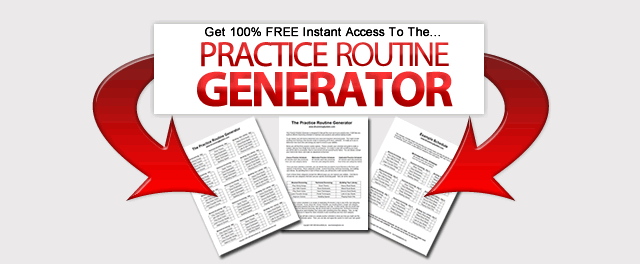Learning How To Get Drum Gigs
<<< Back to Learning Drums Articles
Start Playing With a Band Today!
 So you’ve gotten into the drum-playing business far enough that you’ve decided it’s not just a hobby. Your job takes a back seat, the kids are running around for your attention, and you’re constantly watching the newest emerging bands for a glimpse of the skills of their drummer. It’s time to move to the next level: getting drum gigs. A “gig” is just fancy musician lingo for the name of a paid performance. According to Sam Hill Entertainment Agency, some gig bands are hired for as much as $500 for a local jazz or acoustic group to upwards of $50,000 for a national touring act. For a great party or wedding band, you can expect an average price of $1500-$5000. Don’t forget to factor in the date of the event, location, travel, and production requirements. Unless you know somebody that knows somebody, you can’t get a job, right? Wrong! Here are a few ways to get your name out there and get on the bill in someone’s band.
So you’ve gotten into the drum-playing business far enough that you’ve decided it’s not just a hobby. Your job takes a back seat, the kids are running around for your attention, and you’re constantly watching the newest emerging bands for a glimpse of the skills of their drummer. It’s time to move to the next level: getting drum gigs. A “gig” is just fancy musician lingo for the name of a paid performance. According to Sam Hill Entertainment Agency, some gig bands are hired for as much as $500 for a local jazz or acoustic group to upwards of $50,000 for a national touring act. For a great party or wedding band, you can expect an average price of $1500-$5000. Don’t forget to factor in the date of the event, location, travel, and production requirements. Unless you know somebody that knows somebody, you can’t get a job, right? Wrong! Here are a few ways to get your name out there and get on the bill in someone’s band.
I know it sounds counterintuitive, but a good way to get paying gigs is to do some gigs for free first. Offer to play anywhere people are gathered for any type of event. If you hear a coworker is getting married, ask if they have a band picked out. Play for school fundraisers, dances, parties, etc. or corporate get-togethers like picnics or family days. Any public exposure you can get is good experience and it gets your name out there as a professional musician. You can also get a group together for “jam sessions.” This is a great networking tool as it will allow you to meet other musicians in your area. They’re bound to have connections that might help you line up some paying gigs, so you’re expanding your network while meeting new people and having a great time.
You can also choose to turn to the professionals. Wedding planners, event coordinators, and business event planners are good people to be in contact with if you want your name out there. They will always have a ready supply of events at which you can play your music. Sometimes these types of businesses charge for their services, but for the most part they’ll offer this information to you for free. It’s likely they already have a list of bands they use but it can never hurt to get yourself on the list of available drummers in case there’s an emergency. Eventually, if you shine during a time of crisis, they’ll move you up to first string drummer!
Getting a paid gig might require that you go out for an audition. Practice your technique and work up a drum fill that will impress those for whom you are auditioning. Where can you find these types of bands? They will usually put an ad in drum magazines, posted up at music stores, around the music department in colleges or universities, or in the classified section of websites like craigslist.com. You might also look on forums where musicians post. These forums are a great resource for getting musicians together in the same place to discuss tips, tricks and techniques. Many times they’ll put in an ad for a lead singer, bassist, or, hopefully, a drummer! Even if the band is not your “ideal” style, it wouldn’t hurt to go to the audition for a little more experience. If you take a little bit of time to pore over the requests, you’re bound to find a band with a style you’re looking for, that’s looking for you!
Lastly, use your resources. Do you know someone who owns a bar? Ask them about playing a specialty night or a night where they’re offering freebies to pack the club. Have you heard about a local band that’s splitting up or a drummer that’s quitting the band? They’ll be very interested to find out that you’re a good drummer with quality skills ready to fill in during their time of need. Do you know someone who’s hosting a party? Tell them you’re interested in playing in their backyard or on their patio. Choose members of your “band” that will allow you some room to really showcase your drumming skills. Remember, your goal here is to get more paying gigs as a drummer! Do you know someone getting married, having a baby shower, or planning a fancy get-together? Offer to play along with others you know either for free or for minimal payment. Remember, your goal is exposure and experience now and big bucks with paying gigs later.
Can't read music? No Problem! Learn how to read drum notation here!
<<< Back to Learning Drums Articles



